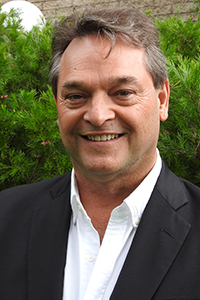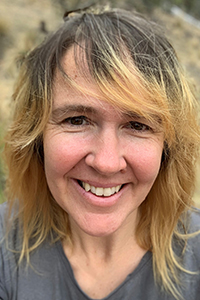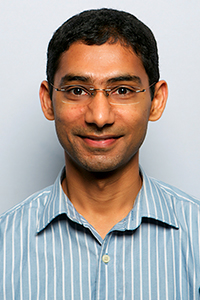Online Webinar
Summary:Former Greens leader Christine Milne chairs a panel of our experts on the systemic changes required to protect lives and livelihoods.
Presenter(s):
- Distinguished Professor Rob White, Criminology
- Dr Kate Booth, Human Geography
- Dr Vishnu Prahalad, Physical Geography
- Chaired by Christine Milne AO
We are now living in a changing climate. With no meaningful government or global action in sight, our lives are increasingly framed by uncertainty and growing inequality. Changing individual consumption and recycling habits alone do not address the impacts of climate change. Instead, systemic changes – institutional and structural changes – are required to ensure equity and liveability for diverse communities and households.
Burning Issues in the Climate Endgame
 Rob White is Distinguished Professor of Criminology at the University of Tasmania and co-author (with John van der Velden) of The Extinction Curve.
Rob White is Distinguished Professor of Criminology at the University of Tasmania and co-author (with John van der Velden) of The Extinction Curve.
Innovation by private entrepreneurs and tax-and-regulate policies championed in the Green New Deal do not address the core problem facing the world today – namely, global capitalism and its growth and globalisation's climate endgame. What is needed is transformation of the private ownership and control of the economy, and a new public ownership structure based upon extended democratic rights and engagement, focused on meeting social needs on a finite planet. We already know, from the science, what the problem is and how to contain global warming. The political challenge, therefore, is how to get there. This presentation outlines responses to climate change and provides a framework for radical action and global activism around democratic nationalisation.
Shop ‘Til We Drop: How green choices are killing us
 Kate Booth is Senior Lecturer in Human Geography with expertise in the capacities and failings of insurance in a changing climate. She aims to contribute to addressing climate catastrophe and associated socio-political challenges.
Kate Booth is Senior Lecturer in Human Geography with expertise in the capacities and failings of insurance in a changing climate. She aims to contribute to addressing climate catastrophe and associated socio-political challenges.
In response to the climate crisis, we are encouraged to change our consumption habitats. If we buy green, the story goes, we do our bit and enable positive change. Yet, this approach fails to acknowledge consumption as a key contributor to the fantasy of infinite growth. Growth is killing us, and green living is growth in green clothing. Looking at changes in insurance over the last 50 years – a key safety net in the face of increasing extreme weather events – Kate argues that the rhetoric around individual responsibility is part of the problem, not a pathway to redemption. If we are serious about addressing climate catastrophe, we need collective action for global system change.
Climate, Extinction, and the Reinvention of Daily Life
 Vishnu Prahalad is Lecturer in Physical Geography with expertise in ecology, environmental management, systems thinking and political economy. He argues the solution to a headache is not to see a brain surgeon.
Vishnu Prahalad is Lecturer in Physical Geography with expertise in ecology, environmental management, systems thinking and political economy. He argues the solution to a headache is not to see a brain surgeon.
The saying goes that “90 per cent of the solution is a careful definition of the problem”. Over the past decade, Vishnu has documented, with solastalgia (‘emotional or existential distress caused by environmental change’), the ongoing effects of climate breakdown and extinction of natural habitats and wildlife. The standard problem formulation is either that this is the inevitable path towards progress or that any negative effects can be ameliorated through political fixes such as offsets and new markets for conservation. In this talk, Vishnu takes a systems perspective to redefine the problem and then present a more systemic solution, namely, to reinvent daily life as a whole. He challenges the shallow fixes we are offered and calls for deeper transformations that go to the heart of system design and intent.
